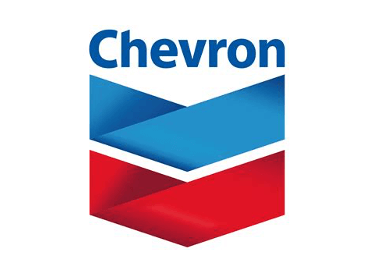How To Get An Entry Level Job In Oil and Gas
Ultmeche extensively covers the exact steps on how to get an entry level job in oil and gas.
This includes how to write a resume for Oil and Gas, how to interview with Oil and Gas Companies, and how to succeed as an Oil and Gas Engineer. (And also everything in between) Whether you’re a student, an engineer in the industry, or even a senior engineer looking for more, we’ve got you covered. Additionally, see our specific mechanical engineer oil and gas resume.
Ultmeche provides resources throughout all phases of your Oil and Gas career starting from when you’re an elementary school student all the way until you are a senior engineer. We’re not born with the knowledge we have, we all start from somewhere. We start off our lives going to elementary, middle, then high school. If we realize quickly we want to go into Engineering in Oil and Gas, we form our extracurricular activities around our career. We work hard in high school, join engineering clubs, join sports teams and maintain a social life (important) and build on projects so that we can get to university. Once we get to university, the work doesn’t stop there – we need to make sure we have high GPAs and internships lined up so that when we graduate, we get hired.
The Big 4 Oil and Gas Companies To Work For Are (Ultmeche Opinion)




A breakdown of why we selected these companies:
Oil and Gas Companies Based On Revenue (2021)

Both Chevron and Exxon Mobil represent the majority of the revenue in oil and gas. They are the big players. These gasoline retailers are the primary choice amongst the US. For their position in market share, we have added both Chevron and Exxon Mobil to our Oil and Gas Big 4 List.
Exxon Mobil

At a whopping $118,900 salary per year, Exxon Mobil is on the top of the list if you want to work in oil and gas. The high company revenue and high salary are great reasons why you should work at Exxon Mobil. Exxon Mobil branches off oil and gas projects in 3 sectors – Upstream, Downstream, and Chemical businesses. You work will impact the lives of millions of consumers.
Chevron

The typical design engineer at Chevron makes an average of $107,858 base pay (Nov 2021 Glassdoor Update). Although the sample sizes may be small at ~13 salaries reported, we find Glassdoor’s data to be relatively accurate with the market rate. Chevron dominates the retail gasoline game.
Schlumberger
Schlumberger provides companies with access to energy through oilfield services such as Petroleum Engineering. The demand for the production of fuel for vehicles and machinery will not stop anytime soon. Petroleum Engineering extracts and refines the hydrocarbons fuel in a safe manner through onsite activities such as extraction, drilling, reservoir, and production.
Petroleum Engineering is a very high paying job and is one of the highest paying disciplines in Oil and Gas.

ITT
For oil and gas, we need machinery such as valves, pumps, compressors, turbines, and the like. ITT’s Industrial Process has a strong portfolio of those products.
ITT’s Oil and Gas portfolio is represented by the following:
- BIW
- Bornemann
- Compact Automation
- Conoflow
- C’Treat
- Engineered Valves
- Enidine
- Goulds Pumps
- Neo-Dyn
- PRO Services
- Rheinhutte Pumpen
- Wolverine
All the above are very solid companies and offer solutions for upstream oil and gas. ITT focuses on safety and reliability through the harshest operating conditions to satisfy the customers’ challenging requirements.
However, if we take a look at the pay, given transparent data from Glassdoor, is not much.

How Oil & Gas Impacts The World:
How to get an entry level job in oil and gas – simplified:
The simplified version of how to get a job in the oil and gas industry is this – graduate high school with a good GPA or go to community college. Transfer out to a recognized engineering school such as Cal Poly, UCLA, USC (if living in California). Once in university, maintain 3.7+ GPA, be active in extracurriculars, join SAE and take on Formula or BAJA as a project, get internships starting freshman/sophomore year. Learn how to write a resume and interview well. Apply to hundreds of job postings on boards such as Indeed.com or Linkedin.
Note – We’re going to say this no matter what industry you’re in. This type of background is solid and you’ll be guaranteed to get a job when you finish school.
How Can Ultmeche Help You Get A Job?
To get a job, you need to submit online applications. Once that’s done, keep in mind you’re competing with thousands of other applicants for the very same position. If you get lucky, and you will using our resume building methods, you will then start to get calls and emails from a recruiter. These calls from a recruiter typically start as an HR Phone Screening just to make sure you’re normal. You’re not in the clear yet. You need to make sure you have behavioral and technical interviews down. Once that HR phone screen is done, you’ll be set to interview with the Engineering Manager. It’s pretty common to have multiple people interview at once, so be prepared for that. Lots of eye contact and reading body language is necessary.
Once you’ve submitted your applications and aced your interviews, it’s now about salary negotiation. This is a game they don’t teach you in school.
How to handle salary negotiation question in an interview?
Just say something along the lines of:
“So I did some research into the role and saw that the salary was anywhere from $80k-120k
Obviously I feel I deserve the top end of that range, but I also understand that you don’t really know me yet which is why I’m ok with starting with $110k so I can prove my worth and competency”
This sets the frame of the conversation and now your interviewers are expected to play in it. You bring perspective of the salary range across the industry & role.
This doesn’t work just for engineering but in any industry.
Offer accepted? Now you need to know how to perform so you can get considered for promotions and make even more money. Develop competence and provide value in meetings – your talents will get noticed and your colleagues will think highly of you.
Landed a job in Oil and Gas Engineering?
Pros of Working In The Oil and Gas Industry
Challenging Engineering work. You will not be bored in an industry like Oil and Gas. Oil and Gas touches many industries and our primary infrastructure relies on Oil and Gas. Sure, there are alternative energy sources that are being explored such as Electric, Solar, Wind, and Hydro. However, we still see fossil fuels dominating US primary energy consumption and expect this to continue for quite some time. Changes into renewable energy, although promising, will take time and trial/error.

Cons of Working In The Oil and Gas Industry
Oil and Gas is a very deadline intensive and high stress industry. Also very traditional mindset – Oil and Gas companies have been around for ages. The majority employees of Oil and Gas companies have been in Oil and Gas their entire lives, meaning that they take the traditional beliefs of the old days with them. Expect to create a solid reputation at the firm to be respected. The rise to seniority and respect will take awhile and you will need to prove yourself.

